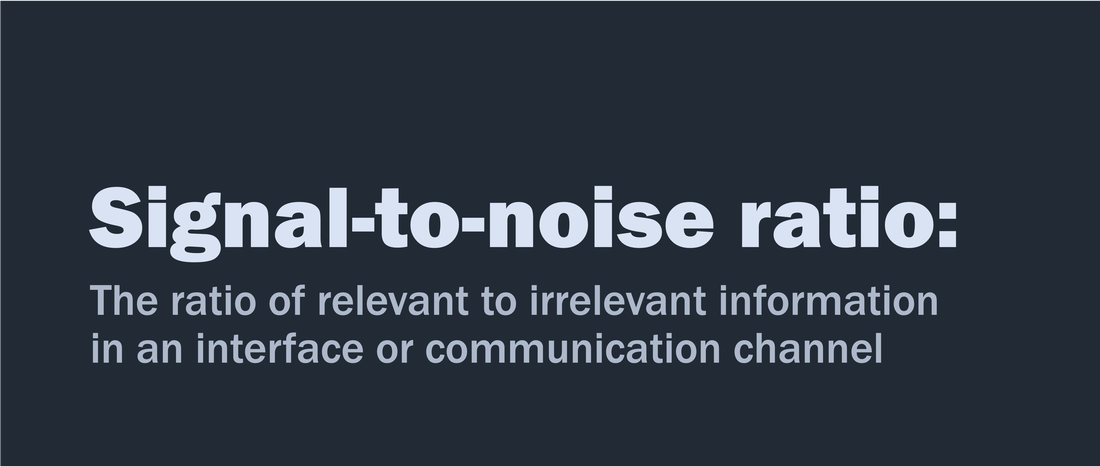|
‘That’ time of the year has arrived once more. For many, the time to put the tools down and relax for a few days is nigh. From the hustle and bustle of public life, families are gathering. Some will celebrate the significance of Christmas, others will celebrate because any opportunity for a party with friends and family is a good one. Amongst it all, some will work on, especially in healthcare, emergency services, process manufacturing, retail and hospitality; we should not forget them for they too have family and friends. I am one amongst many who carve out a little time and space towards the end of December to reflect on the year gone. Often, my mind is drawn towards relationships and experiences. This year is no exception.
Before signing off this last post for the year, a note of heartfelt thanks. Thank you to everyone who has seen fit to consider my ideas, challenge my thinking, and invite me to work alongside them this year. To have been afforded the opportunity to contribute, globally, has been delightful. The calling, to serve and support boards intent on realising organisational performance, remains strong. Consequently, the work will continue in 2023, starting in early January with responses to a long list of enquiries to assess, advise, coach and speak. Now, I have one report to complete, a client event to attend, and a few Christmas errands to run. Then, I shall set the tablet and pencil down, in favour of a book or two, my vegetable garden, a few small jobs around the house, and some quality family time.
0 Comments
I’ve spent quite a bit of time in recent weeks thinking about problem solving; my attention drawn, in particular, to problems that fall between simple (for which answers are self-evident) and wicked (easily defined, but for which an answer is elusive due to incomplete or contradictory information, or changing requirements). Difficult problems are those that can be solved, but answers are far from evident, even following careful enquiry. The BBC Series, The Bomb, explores a case in point. Nuclear fission was discovered to be theoretically possible (Leo Szilard), but considerable effort over the following decade was required to finally tackle the problem in practice. So-called ‘difficult problems’ require, clearly, intentional enquiry and, often, patience. As with gravity and magnetism, the underlying explanation (resolution) cannot be observed directly, only through its effects. So, deep and critical thinking is needed, if a resolution is to be discovered. Such problems are familiar territory for boards: if they were straightforward, management teams would resolve them. And therein lies the challenge for directors: the underlying cause of a problem raised to board level tends to be hidden under that which can be seen. And what is more, any linkage between the problem, the underlying cause, what can be observed, and any subsequent effects or impacts (note: plural) is tenuous and, almost certainly, contingent. If boards are to be effective in their work (governance: the means by which companies are directed and controlled), directors need to be alert, astute and actively engaged—more so because resolutions to difficult problems cannot be discerned directly. Thus, directors need to think beyond what is written in board reports, and what is apparent when reading other materials. Those who think they can get away with quickly reading board papers a few days before the upcoming meeting are kidding themselves. If directors are prepared to read widely across a range of topics, allocating 1–2 hours per day for six days every week, to consider ideas and think deeply, the likelihood of uncovering possibilities and solution options is greatly enhanced. Indeed, the correlation between, on one hand, time spent reading and thinking deeply, and on the other, high quality decisions is stark. Time and critical thinking matters, if directors are to add value.
The June solstice is almost upon us. Davos, the World Economic Forum's annual meeting of elite political, academic and business leaders (some would say, talkfest), is over for another year. Private jets have returned to base, and the thoughts of leaders (in the northern hemisphere, at least) are turning to summer holidays and, with it, relaxation, reading lists and an opportunity to cogitate. Meanwhile, leaders south of the equator press on, for the June solstice marks the onset of winter. Metaphorically, the June and December solstices are signposts: marker pegs that signal pending change. Over the past couple of years, I have been watching intently one signpost in particular, wondering whether it might portend a change in relation to board work, or whether it might be a mirage that can be ignored. ESG, a three-letter acronym for environmental, social and governance, was coined in 2005 by a group associated with the United Nations. The stated goal was to put pressure on companies to think beyond financial indicators as the primary indicator of business performance, and to report accordingly. A veritable industry of so-called experts (many self-styled) has emerged in recent years, all claiming to help businesses respond well to ESG demands and expectations. Many business leaders, activists, politicians and directors’ institutions have latched on too, themselves motivated by various self-interests. That interest in operating sustainably and improving reporting is high is no bad thing. However, to date, evidence to support the proposition that the embrace of ESG leads to better performance is yet to emerge. Indeed, cracks are starting to appear. Several critical thinkers have called out ESG as offering less than what has been claimed. Some have gone as far as asserting that ESG is a ‘solution’ looking for a problem (read: wasted effort). Whether it is or not remains to be seen. However, there is cause for concern: discussion has reached the point that advocates have deemed it necessary to make counter arguments, to defend ESG. That several different definitions of the term are circulating doesn't help. Boards also need to be very alert and ask probing questions, to ensure they continue to discharge their duties. In particular, boards need to assess whether ESG proposals are conducive to improved business performance, and if ESG is a harbinger of substantive change in the way businesses need to operate or yet one more TLA, a fad that will ultimately be consigned to the history books and, in time, forgotten. That questions are being asked—openly—should be a catalyst for political, civic and business leaders to check that the aspiration (claim), intention (strategy), actions taken and resultant outcomes are aligned. On the evidence to hand, ESG is unlikely to be a panacea. Thus, a level of scepticism in relation to the purported benefits of ESG is warranted.
The role and contribution of the board of directors in companies has become a source of fascination for many; curiosity growing with each corporate failure or significant misstep emanating from the boardroom. On paper, the role of the board is straightforward: to steer and guide the company towards agreed objectives. The legal framework within which directors operate is both stable and adequate, duties are specified and the principles are clear. So, what could possibly go wrong? Guidance to help boards govern well is not in short supply. Many researchers have postulated the configuration of the board is material to effectiveness and outcomes; some say the key lies in board process and policy; and yet others point to boardroom behaviour. Consulting firms and directors' institutions have proposed models too. While these proposals are enticing, failure studies and other analyses suggest none provide surety in terms of helping boards operate effectively in practice. One of the reasons reliable guidance remains elusive is that board work is far from straightforward. Long-term studies of boards informed by direct observations of boards in session are few and far between. And, boards need to consider many things, debate options, weigh up risks and, ultimately, make decisions—all within an environment characterised by ambiguity and change. And if that is not enough, the board does not operate the company, the executive does. If a board is to have any hope of discharging its duties, much less govern well, a solid foundation is crucial. That means directors need to understand their role and duties, and make sense of information.
If a board is to exert any meaningful influence beyond the boardroom, directors first need to understand the duties of a director and role of the board. Competence gaps are not tolerated in medicine or engineering: No one would expect a doctor to use a carpenter’s tools, or accept crayon drawings from an engineer. And yet such acceptance is tacit amongst directors and shareholders. What is more, if a director transgresses, the likelihood of being held to account before the judiciary is relatively low. A commitment to professional development, and the professionalisation of directorship, are proposed as mechanisms to close the competence gap. Once in the boardroom, directors need to apply their collective knowledge and expertise, maturity and wisdom as they consider information, distinguish signal from noise, and make decisions. If that can be achieved, the likelihood of the board making an effective contribution greatly is enhanced. The gap between the board's provision of steerage and guidance (i.e., governance) and business performance has been at the core of my work over the past two decades, motivating my formal research, practical enquiry and contributions as a director. If you would like an update on recent progress, please contact me.
In 1960, Jane Goodall, a trailblazer in the field of primatology, visited the Gombe Stream National Park in Tanzania to study chimpanzees. And so began a 60-year study of chimpanzee social interaction. The study was groundbreaking; revealing new insights about chimpanzee behaviour and interaction. Goodall observed directly, for the first time, human-like behaviours in chimpanzees. These included toolmaking (albeit rudimentary) and armed conflict between competing individuals and groups. Consequently, humanity's understanding, of both chimpanzees and itself, changed. Some centuries earlier, Copernicus produced insights about the transit of planets; specifically, that the planets have the Sun as a fixed point around which they orbit. This observation undid conventional wisdom, which held that the Earth was the hub around which other bodies orbited. Later, Kepler explained the observations. These examples illuminate the value of long-term direct observations of dynamic entities, especially groups of entities, to achieve more accurate understandings of not only the entities, but their actions and interactions. The principle holds in contemporary society. Sociologists and anthropologists, for example, have long seen the importance of observing social groups first hand (long-term ethnographic studies, sometimes involving full participation) to gain insights that might lead to more complete understandings and explanations of group dynamics, and the impacts and consequences of group action and interaction. Moving now to consider a subject of great personal interest: boards and governance. How do boards work, and what are the characteristics of an effective board of directors? Can, and if so how, boards influence company performance? And how might one go about finding out? To date, the predominant approach to tackling these questions has been to apply scientific principles, in search of linkages between attributes of boards and company performance. But this enquiry has raised yet more questions. For example, can a comprehensive understanding of the function, interaction and impact of boards be gained by studying isolated attributes of boards, such as the number of directors, independence, 'diversity', or other static attributes, all from outside the boardroom? Or by applying statistical methods to search for regularities (or differences) in publicly available data? Or by interviewing or surveying directors and/or managers about their perceptions about the conduct or behaviours of directors during board meetings? Enquiries utilising these approaches have produced thousands of research papers and published articles. They have been helpful in so far as they have provided clues about what may or may not be material to identifying the characteristics of high performing boards and the impact of boards on company performance. But the basis of these studies is not as it first seems. These are not studies of boards in action, they are studies based on representations of specific attributes associated with boards, not actual data about the board going about its work—just as the headline picture looks like a pair of giraffes but they are representations, not giraffes. A small but burgeoning group of researchers have taken a different approach. Invoking Goodall, they have completed long-term observation studies of boards of directors going about their work (i.e., the researcher in the board room, silently observing the board in session, over an extended period to move beyond the behaviour modification that naturally occurs when someone or something arrives in the environment). To date, fewer than a dozen studies have been published. These studies have produced insights that are somewhat different from those produced by remote studies of isolated attributes of directors and boards. In particular, the importance of certain director capabilities, board activities (tasks) and director behaviours is highlighted. Static attributes, such as board structure and composition, seem to be far less relevant. So, two different approaches, and two different sets of conclusions. That is perhaps not unexpected. But it does leave a rather awkward question—the same as that faced by Kepler, Copernicus and Goodall, and others who have reached observation-based conclusions that have differed from conventional wisdom. Might the small group be on to something? And, if so, might the majority (in this case, business school academics, regulators, institutions, governance consultants) be prepared to set conventional wisdom aside, to pursue a different understanding of how boards can influence the performance of the companies they are charged with governing?
Every year, at about this time, sages and futurists of various stripes peer out from their sanctuaries to offer opinions of what the future holds. Many speak or write deterministically, as if they have been blessed with special powers to know or postulate the future with great accuracy. Pronouncements are read with great anticipation by many, and embraced as if categorical. But some commentators are more circumspect; their contingent expressions reveal great maturity and wisdom. “Forecasting is always a hazardous business. … no one can claim that the future is entirely inscrutable.” One does not need to look far to see examples of the difficulties faced by those charged with forecasting and strategising. Over the last two years, for example, undertones of fear and stasis have been prominent. People and companies have frozen in response to pronouncements and dictates from national leaders. Economic and social priorities have been set to one side; the main—nay, only—focus has been on the pesky virus known as Covid19. First, borders were closed and populations were locked down, in an effort to flatten the curve. Some even tried to eliminate the virus. Then, recognising their folly, leaders embraced vaccination to reduce the effects of the virus. Most recently, mandates have seen populations divided into two classes, the vaccinated and the un-vaxxed. Naysayers have jumped in, but many of their predictions have proven to be wrong as well. Meanwhile, economies have struggled and the social fabric has frayed. Amidst this backdrop, boards remain responsible for the performance of the companies they govern. Of those who recognise this (and not all do), some boards wait, perplexed by the unknowns, and others strike out, believing they can control the future, despite a plethora of externalities. Neither response is particularly wise. High performing boards and leadership teams recognise that things change, often unexpectedly. They remain vigilant, watching for weak signals that might portend the emergence of something significant. They hold options open for as long as possible. Then, when it is time, they act, decisively. The types of questions high performing boards ask (and keep asking) include:
While some of these questions may be difficult to answer, boards must persevere. Even partial answers are likely to indicate a more reliable way forward than the lazy option of blindly pursuing the supposedly categorical predictions of mediums, sages and futurists.
News of a new variant of the coronavirus emerged this week. B.1.1.529 (now Omicron, a moniker assigned by the World Health Organization) was first isolated by scientists in South Africa. Already, it has been detected in several neighbouring countries and in the United Kingdom, Belgium, Czechia, Hong Kong, Germany, Australia and Israel. Governments are reportedly “scrambling to protect their citizens from a potential outbreak". These responses are supposedly to protect but also, undoubtedly, to buy time. Given the experiences since the coronavirus disease was first detected and subsequently declared to be a global pandemic, the reactions to the latest variant are hardly surprising. News agencies and social media commentators have been up to their usual antics; newsfeeds are abuzz. Fear is a powerful catalyst, of course. But reliable guidance to indicate whether Omicron is more or less contagious, and more or less virulent, is yet to emerge. For example, the two cases in Australia are asymptomatic and both people are fully vaccinated. A calm response is needed. Another interesting aspect of the current situation is the response to those who first alerted the world to what they had discovered. When virologists in South Africa openly shared the results of their advanced gene sequencing tests, others (especially in so-called advanced economies) were quick to point the finger. They accused several countries in southern Africa of being the source of the outbreak, and ostracised them by banning travel—even from countries with no recorded cases—demonstrating the blame game is alive and well. Effective leaders (boards) do not get caught up in the blame game. They take another path:
Then, having prepared and decided upon a course of action, effective boards remain engaged. They keep their eyes open, scanning for weak signals that might portend danger. If danger strikes, they engage immediately and fully—supporting the executive response but remaining calm at all times. Is your board well-equipped to lead in an event that threatens the company’s prosperity or viability? And what is the likelihood it will oversee an appropriate response? Will it work calmly with the executives as a conjoint team to assess the situation and activate an appropriate response, or will it remain aloof and descend into finger pointing (perhaps because directors are more interested in protecting their personal reputation)? If there is any chance of the latter, consideration should be given to replacing the board with directors who are prepared to take their duties more seriously.
The invisible hand, Adam Smith opined, is a metaphor for self-corrective power in systems. If one party within a system, or one part of a system, becomes too strong or dominant then, sooner or later, an alternative will emerge, to restore equilibrium. Regardless of whether it is applied personally (think: bodily effects of obesity), in politics (extreme ideologies), or at population (demographic and social inequities) or even planetary level (geological stresses), the maxim holds, it seems. In business, the self-corrective power is the market. If price is perceived to be too high, or too low; workplace culture or employment conditions are unhealthy; product or service quality does not meet expectations; or, return on funds invested is too low, prospective customers (staff, suppliers, shareholders) respond—they seek alternatives. This inherent power, held by those who interact within the system, has underpinned sustainable commerce for centuries, even millennia. And yet some governments and para-governmental agencies find it necessary to intervene, through the creation of rules. But such interventions are usually costly, and they rarely achieve enduring equilibrium. Inevitably, those with decision-making power within companies find ways around what they perceive to be unreasonable barriers to sustainable prosperity. Please don't misconstrue this observation as a wholesale rejection of rules. It is not. Rather, it is a plea for regulators and boards to take stock. What is the minimum regulatory or policy framework to facilitate commerce and ensure fairness; the point beyond which effort will naturally be diverted, resulting in inefficiencies? Consider stakeholder capitalism as a case in point. Advocates argue a more stringent regulatory framework is required to ensure the value created by companies is 'shared equitably'. This seems fair. But what if an external stakeholder group influences company strategy in a direction different from that which the board and management have agreed is appropriate? Where does accountability lie is such a situation? Should external stakeholder groups be held to account if they ‘force’ certain practices and policies onto a company that impair the performance of the business and lead to in value erosion? The more time spent satisficing the expectations of external stakeholders, including complying with regulatory requirements, the less time remains to pursue agreed goals and sustainable performance. If company leaders—boards in particular—focus resolutely on the pursuit of agreed strategy, and on the achievement and reporting of results across the three critical dimensions, namely, social (staff, client, supplier satisfaction, which includes fair pay, good relations, etc.); environmental (impact, minimising footprint) and economic (financial return to shareholders), prosperity should follow. But if leaders trade recklessly; abuse staff or suppliers, price goods and services above what is reasonable, or disregard the environment, the company they govern deserves to struggle or, in severe situations, fail. Regardless, the invisible hand will have made its presence felt. What more should anyone expect?
News of Emmanuel Faber's dismissal as executive chairman of Danone, a French food conglomerate, has caused quite a stir. Mr Faber, a fervent proponent of stakeholder capitalism and ESG, had led the company for seven years. Since 2017, he has held both the chair and chief executive roles (a situation disfavoured by many investors, academics and advisors due to concentration of power risk). Though charismatic and influential, the record shows that company performance has languished under Mr Faber's leadership, and staff turnover increased too. Clearly, something was amiss. Sustained pressure from activist investors, disgruntled by Danone's performance (relative to its competitors, over several years), finally elicited in a response. The Danone board decided to separate the chairman and chief executive roles; Faber would remain chairman of the board and a new chief executive would be recruited. But this attempt by Faber to placate the activists while also retaining power was received poorly. Faber was, in the eyes of the activists, a lead actor and, therefore, a big part of the problem. He had to go they thought. Realising this, the board ousted Faber. Proponents of both stakeholder capitalism and shareholder capitalism have taken Faber's demise as an opportunity to come out from their respective corners to argue the merits of their favoured ideology. The purpose of this muse is not to add to that discourse; it is to consider another matter brought in to view by the case at hand: that of misalignment. If a Chief Executive acts against the direction of the board (or without the board's knowledge), or if a board is disunited over a strategically important matter (purpose or strategy, especially), company performance (however measured) will inevitably suffer. Danone is a case in point. Matters of misalignment, either amongst directors or between the board and chief executive, need to be resolved promptly. Similarly, if purpose and strategy are clear, coherent and agreed, but subsequent implementation is poor or ineffective (the saying–seeing gap), the board probably has a leadership problem. Attempts to satisfy all interests—appeasement—rarely achieve satisfactory or enduring outcomes, as Neville Chamberlain discovered in 1938–1939. Directors need to be alert (individually and collectively, as a board); united in their resolve to pursue agreed goals; and, their tolerance for underperformance must be low. If the board is complacent in the face of misalignment or poor strategy execution, and it does not act, it becomes part of the problem. Sooner or later, shareholders will notice, and it is reasonable to expect they will act, to protect their investment.
Have you ever wondered what it would be like to travel in a plane without any knowledge of where you might be headed? While this prospect may excite some, the idea of flying without a destination or purpose in mind beggars belief for most people. Successful air travel is predicated on knowing the destination; a precursor to the pilot creating a flight plan to make the journey and arrive safely. Air travel is, generally, safe and straightforward when this principle is applied. But things can go wrong, and if they do, pilots must be ready to respond well. For that, years of training and accumulated experience are vital. And vigilance too: continuously reading onboard and external signals to verify progress, and to spot and respond to any emerging problems. Successful governance is directly analogous. Knowledge of the destination and how to get there (purpose and strategy) is vital, as is constant monitoring of both the general direction (to verify progress is being made towards the desired goal) and the current situation (to detect any emerging problems). Boards are, in general, reasonably good at reading and understanding the current situation. But they are not nearly as good when it comes to general direction. Knowledge and agreement around the ultimate goal, how to get there and how progress might be measured remains problematic. If directors and boards lack clarity on these matters, their ability to govern well and ensure the performance of the company into the future is lost. The consequential risks are high. Chances are, the board and the company will be knocked around—moving but not making progress, just like a cork in a washing machine. Does your board have this in hand?
|
SearchMusingsThoughts on corporate governance, strategy and boardcraft; our place in the world; and other topics that catch my attention. Categories
All
Archives
April 2024
|
|
Dr. Peter Crow, CMInstD
|
© Copyright 2001-2024 | Terms of use & privacy
|











